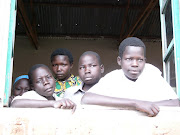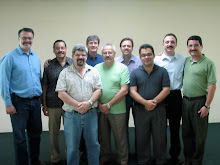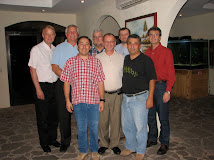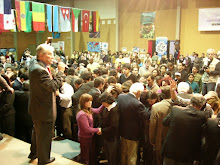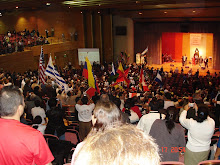 COMIBAM III
COMIBAM III
SEEN THROUGH THE EYES OF
A FORMER MISSIONARY
Being able to attend this congress in Granada Nov 13-17, 2006 was one of the greatest blessings, inspirations and lessons in my life.
I have attended a large number of Christians gathering all over the world, but this became special for several reasons:
The history.The third mission gathering for the Latin American evangelical church decided to go to the very heart of “Los Conquistadores”, the lands of those who invaded the whole continent. Los Conquistadores stole gold and silver, killing 8 million of the indigenous population, and taking over the power before leaving the countries in poverty for centuries. “We have paid our debt ten times” said an Argentinean theology professor.
Yes, dear brothers and sisters in Latin America, you have. You have done more than that by 2000 of you coming over, without mentioning one bad word about history and without showing any unfriendly attitude, you have built a bridge of Christian fellowship that only you can do. Columbus and his crew brought the gospel, wrapped in a foreign language and culture forced upon you by guns and encroachment. Thanks to our living God you dared to unwrap it and reshape it in your national love.
 Church history.
Church history.The opening ceremony with the participants from about 40 Latin American and other countries, representing churches, training and mission agencies. About 300 of these were Latin missionaries serving in about 60 counties of Asia, Africa, and Europe coming in their national costumes, to the music of the flamenco from Spain , accompanied by the charango from Bolivia and the marimba from the Caribbean. I said to Jesus: “There must be windows in Heaven so that pioneer evangelical missionaries can see this!”
A small group of missionaries started back in 1890, most of them died either as martyrs under attack from the Catholic priests or from sickness. As the twentieth century began there were 50,000 evangelical believers, this turned into 80 million a hundred years later. This is the book of Acts in modern history, a visible act of the Holy Spirit. It is not a church growth due to rituals and traditions, it is growth coming from a desire to transform societies, to establish a community of mutual sharing and love, giving, providing shelter to the needy, begging God himself to heal your inner wounded beings. You are poor, but rich with spiritual gifts and encouragement.
“I met myself in the door” (A saying)Coming to Ecuador as a missionary in the early seventies, we were met with respect and given authority, the local churches respected us. Since we had “invisible” money from our home church, the needs from the society flocked around us. In those years, going as a missionary was “becoming someone” both in our sending churches and organisations as well as in the society where we served. I have to admit that I had done very little reflection about the “model” we left behind in the new culture. Nor was it dealt with in our missionary training, the requirement was several years of evangelical Lutheran training.
The reason why the society accepted us, can most likely be found in the religious catholic influence of the Latin American society and that we were designated to work with the poor that usually keep quiet.
Taking a new religion into a culture is to become a model, that we can see from the history. In COMIBAM III I saw the appreciation of the missionary model. The highest service was to become a missionary, sent out and paid for by the poor church. Many of the questions we discussed as participants were related to getting the financial support.
Why did Paul an artisan, enter Europe as a tentmaker, (Acts 18,3), not as a well trained Pharisee? He was aware that he was a model for the new believers on how to spread the gospel. Several times he challenged them to “Have me as a model…, labouring night and day.(1Thess 2, 8). As pastors and church workers, you know what it takes to be a religious worker, living out of your own income and still sharing with the needed. This is a model of growth, why not adopting this as a model for cross cultural evangelism?
 Chosen for the new paradigm.
Chosen for the new paradigm.God is calling us to go to the unreached. With 43.5% of you, cross cultural missionaries in the Muslim world, it is a sensational moment in mission history. Still aiming for 70% growth, having, 7500 cross cultural workers, and having a vision for sending 12000. As the body of Christ in to-day’s world we need ask who can go where. We are going into areas where there is hardly any respect for Christianity, we can not expect to be welcomed just by our nationality and money. As Westerners, history has left blood on our hands, and there are visas restrictions in most places.
Latin Americans are welcomed, and you have through you language and mind set much in common with Arabs. You are servants, you know what it is to be poor, and you have a natural
gift of loving people.
The greatest challenge for mission today, is to dare to live out a witnessing life in secular society. Globalisation has opened up a job marked that we as Christians need to see as Gods open doors. The Muslims are not only in The Middle East, they are our neighbours at home. We need to create mission strategies that can survive political chaos. Listening to the plenary session about the message to the church, preoccupations and revelations, we listened to a prophetic voice that sees the changes needed for a new paradigm.
Thank you for inviting me. You will always be in my prayers.
Berit Helgøy Kloster, Norway
Senior associates for Tentmaking
Lausanne Committee























